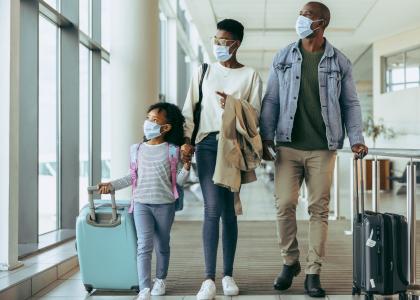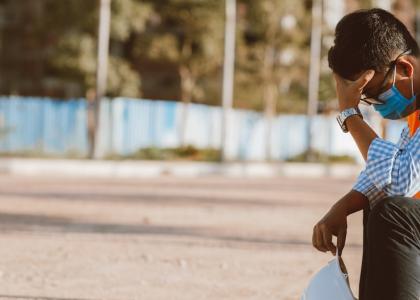PAR-21-213
Tracing the Health Consequences of Family Support during the COVID-19 Pandemic

This project fills this gap in the research creating a multidimensional contextual database linked to the Health and Retirement Study (HRS) and the Panel Study of Income Dynamics (PSID) to examine the effects of the pandemic across generations of American families. The HRS and PSID have collected data on the health and well-being of individuals and their family members for decades.
Mitigating Effects of Telehealth Uptake on Disparities in Maternal Care Access, Quality, Outcomes, and Expenditures During the COVID-19 Pandemic

Telehealth represents a promising opportunity to reducing disparities in maternal health access, quality, and outcomes, given its substantial range of opportunities.
The Longitudinal Impact of the COVID-19 Pandemic and Related Multi-Level Mitigation and Contextual Factors on Health and Socioeconomic Outcomes of Individuals and Families From a Vulnerable Population

A “shovel ready” project leveraging the existing longitudinal data collected in the Fragile Families and Childhood Wellbeing Study (FFCWS), the longest running population-based US birth cohort, collected before and throughout the pandemic linked with multilevel COVID-19 related health, social and economic measures, and prospective COVID-19 impact assessments to examine these issues.
COVID-19 Pandemic Mitigation, Community Economic and Social Vulnerability, and Opioid Use Disorder

The goal of this study is to leverage large comprehensive claims and electronic health data, capturing nearly half of the U.S. population from before the pandemic through 2026, to test our hypothesis that social and economic vulnerabilities, as well as economic side effects of the pandemic will escalate the prevalence of OUD and related harms.
Statistical Adjustments of Sample Representation in Community-level Estimates of COVID-19 Transmission and Immunity

This project will develop a valid metric to estimate the true viral incidence and immunity prevalence in the community, examine the health disparities and social inequality, and monitor the epidemic over time as an operational surveillance system.
Rural-Urban Disparities In Spillover Effects of COVID-19

This project is focused on understanding the magnitude of COVID’s spillover effects on cerebrovascular disease in rural areas, as well as the impact of key mitigation strategies.
A National Neighborhood Data Resource to Understand Inequities in the Health and Socioeconomic Impacts of COVID-19 in the United States

This project will use the National Neighborhood Data Archive (NaNDA) to identify which communities are most vulnerable to the immediate and longer-term consequences of the pandemic for a host of behavioral, psychological, social, and economic outcomes.
Policies on Racial/Ethnic and Socioeconomic Disparities in Mental Health and Healthcare Utilization

The goal of this study is to leverage, expand upon, and link existing national data sets to test the hypothesis that county-level public health and social policies have affected disparities in mental health and healthcare utilization.
Impact of the COVID-19 Pandemic on Patients with Alzheimer's Disease and Alzheimer's Disease Related Dementias

In this project, we will examine the impact of changes in outpatient and inpatient care on clinical event rates and deaths among older patients with Alzheimer’s Disease and Alzheimer’s Disease Related Dementias living in the community.
A New Database to Measure the Association Between Income, Race, and Mortality: Inequality in Longevity During and Beyond the COVID-19 Pandemic Disparities

This project will build a public database of mortality rates incorporating socioeconomic and demographic variables across the U.S. population. Researchers will be able to analyze the sources of disparate impacts of COVID-19 on mortality across subgroups, with the aim of understanding how to reduce health inequality.